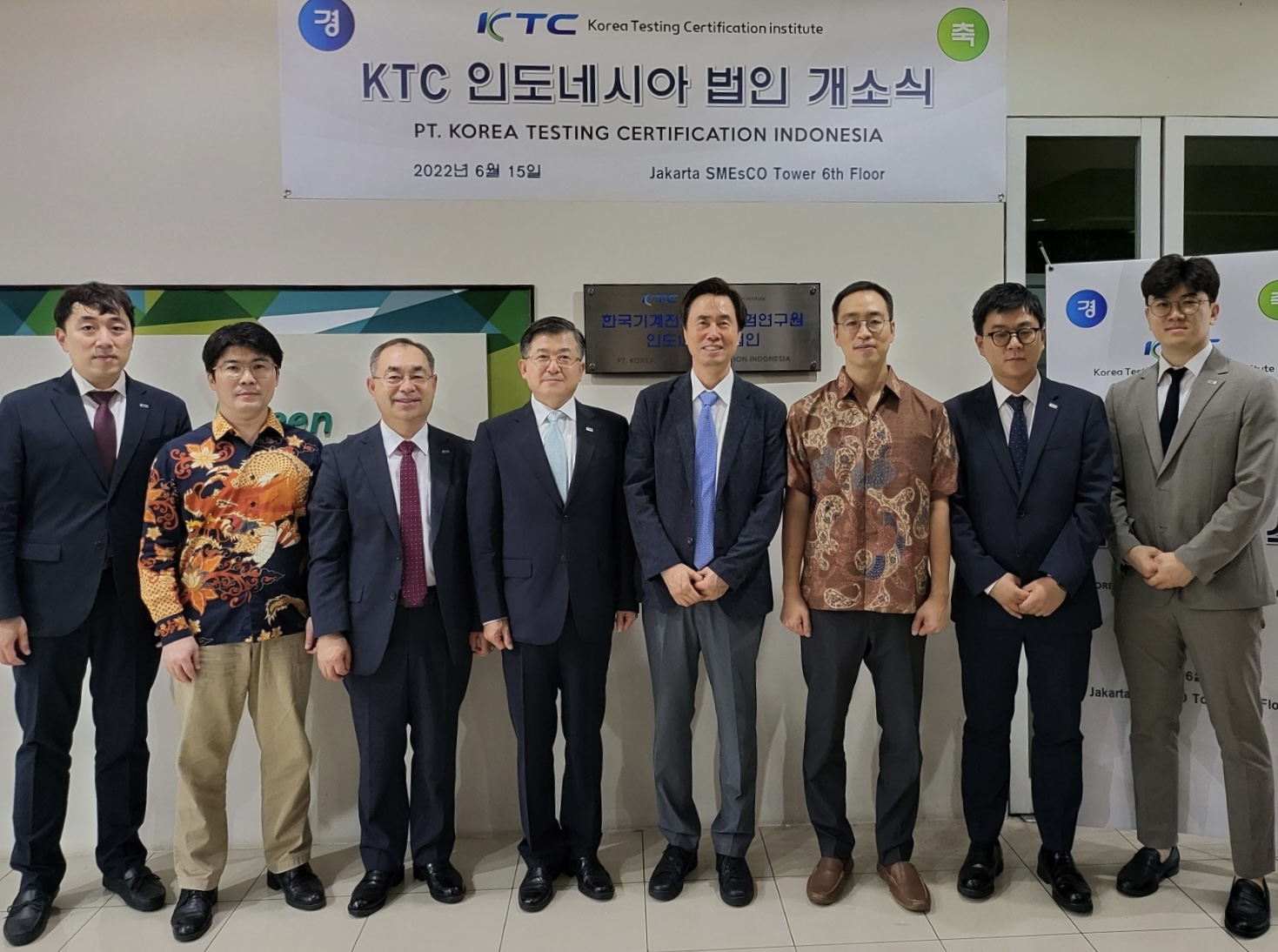[Opinion] The Giant of Southeast Asia: Indonesia Market Entry and Certification Testing

▲ Kim Yoon-hwan, KTC Indonesia Corporate Director
Since the establishment of diplomatic ties in 1973, South Korea (hereinafter referred to as Korea) and Indonesia (hereinafter referred to as Indonesia or IN) have continuously enhanced their cooperative relationship. In 2023, in commemoration of the 50th anniversary of diplomatic relations, the scope of concrete cooperation projects has expanded. While the trade volume between Korea and Indonesia was merely $185 million (approximately 250 billion won) at the time of establishing diplomatic ties, by 2022, it had increased by more than 140 times to $26 billion (approximately 35 trillion won), indicating Indonesia's emergence as a new market for Korea. Many Korean companies such as Hyundai Motor and LG Electronics have already entered the Indonesian market, with LG Energy Solution forming a consortium to promote battery value chain construction locally.
During the process of preparing for entry into the Indonesian market, most Korean companies encounter difficulties related to non-tariff barriers such as Indonesia's pre-import approval system, certification system, and requirements for the use of domestic parts. Among these, obtaining SNI certification, which corresponds to Indonesian national standards, is one of the significant challenges that Korean companies must address.
SNI certification, abbreviated from Standar Nasional Indonesia, is a certification system for Indonesian national standards and specifications for products and production processes. It has been enforced since 2014 based on laws regarding standardization and conformity assessment aimed at ensuring product service, quality, safety, and eradicating the circulation of harmful products.
SNI standards are developed and published by the Indonesian National Standardization Agency (Badan Standardisasi Nasional, BSN), and their enforcement is determined by various Indonesian government agencies such as the Ministry of Industry and the Ministry of Energy and Mineral Resources. Apart from developing SNI standards, BSN also supervises and regulates testing and certification bodies.
SNI standards can be divided into mandatory certification and voluntary certification. Mandatory certification occurs when SNI standards are developed by BSN and subsequently enforced by Indonesian government agencies, similar to Korea's KC certification. Voluntary certification applies when the standards are not mandatory but are sought after by companies for marketing purposes. However, due to the lack of testing infrastructure in Indonesia, obtaining voluntary SNI certification is not straightforward.
When Korean companies initially enter Indonesia, they often attempt to utilize domestic test reports or certifications based on Korean standards for SNI certification. However, Indonesia does not allow this practice. Although there are cases where the test results from domestic certification bodies are accepted for certain products lacking testing infrastructure, most products must undergo testing in Indonesia, often requiring Indonesian assessors to visit Korean factories for inspections.
Furthermore, for SNI certification applications, cooperation agreements regarding trademark or brand usage with local partners or corporations must be prepared. The certification process involves more than just proving the product's quality; it requires local entities within Indonesia to apply for certification and bear legal responsibilities. Therefore, Korean companies invest considerable time and effort in finding local partners during this process.
Since establishing a local corporation in Jakarta, Indonesia in 2022, KTC has been supporting Korean companies entering the Indonesian market and participating in the local industrial ecosystem. For this purpose, KTC opened the first Indonesian Technical Barrier to Trade (TBT) Support Center in Korea to address various Indonesian technical regulations, including SNI standards.
Recently, there has been an expansion of the market for electric scooters with interchangeable batteries in Indonesia, with Korean and Chinese companies competing fiercely. In 2023, the Indonesian National Standardization Agency removed the 48V provision from SNI standards for "Electric Scooter Interchangeable Batteries and Chargers," causing difficulties for Korean companies producing products based on the 48V Korean standard seeking to enter this market. KTC, having foreseen this issue, conveyed the concerns of Korean companies to the Korean government and jointly addressed the necessity of maintaining 48V at public hearings organized by the Indonesian National Standardization Agency.

▲ Photo of the Opening Ceremony of KTC Indonesia Corporation in 2022
In the future, KTC plans to actively support the resolution of technical regulatory barriers hindering Korean companies' entry into the Indonesian market. Furthermore, KTC is planning a joint project with the Indonesian government to establish an "Electric Scooter Ecosystem Development ODA Project." In addition to consulting on technology and regulations, this project will involve establishing local testing facilities and providing a "total ODA solution," including designation and commissioned operation of testing institutions, to facilitate the expansion of Korean companies' overseas businesses and their foothold in the local market. Moreover, KTC is expanding its collaborative network to support Korean companies intending to export to the Indonesian market.
In May 2023, KTC signed a memorandum of understanding with the certification body of the Indonesian state-owned electricity company (PLN). Through this agreement, KTC was designated as a testing institution by the certification body, actively supporting the export of power-related materials manufactured by Korean companies, such as electric vehicle chargers, circuit breakers, and power cables, to Indonesia.
With a domestic market of 270 million people and being the world's largest nickel reserve, a key mineral for electric vehicle batteries, Indonesia has attracted global attention. It has become a significant economic cooperation partner in line with the strengthening trend of economic cooperation between Korea and Indonesia. KTC will strive to play a guiding role for Korean companies entering the Indonesian market through testing, certification, and standardization cooperation, akin to a "Sherpa" assisting in Himalayan mountain climbing endeavors.


